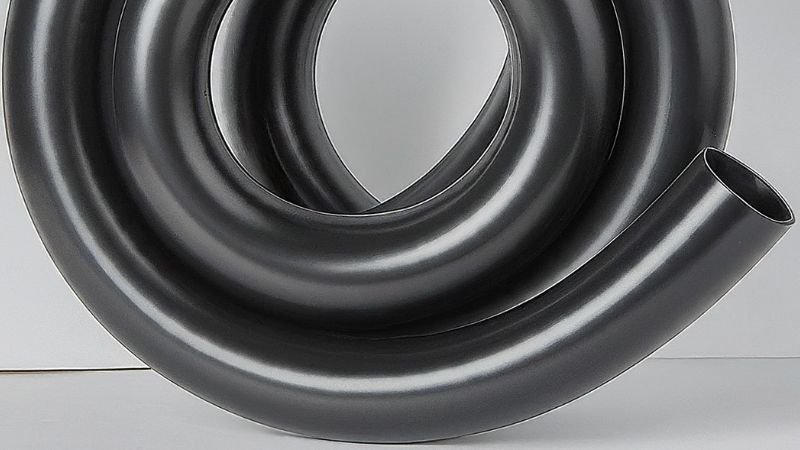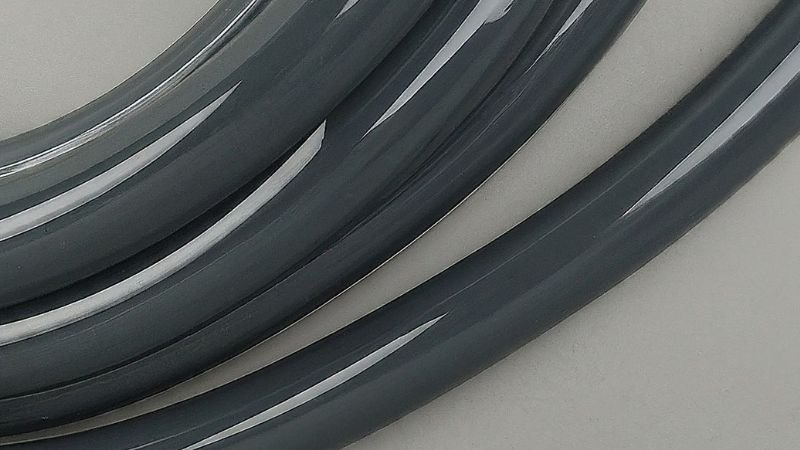When it comes to choosing between silicone hoses and rubber hoses, many businesses face a significant dilemma. The performance and durability of these hoses can directly impact operational efficiency. Given their role in various industrial applications, from automotive to manufacturing, selecting the right type of hose is crucial. The wrong choice could lead to frequent replacements, unexpected downtimes, and increased costs.
Silicone hoses offer several advantages over traditional rubber hoses. They are known for their superior flexibility, temperature resistance, and longevity. While rubber hoses have their own set of benefits, the durability and performance of silicone often make them a preferred choice in demanding environments.
So, what makes silicone hoses stand out? And are they truly better than rubber hoses for all applications? Let’s dive deeper into the key differences and benefits of each to help you make an informed decision.
What Are the Key Differences Between Silicone and Rubber Hoses?
Flexibility: One of the primary advantages of silicone hoses is their exceptional flexibility. Silicone remains flexible at a wide range of temperatures, from very low to very high. This flexibility helps in applications where the hose needs to bend or move frequently without kinking or breaking.
Temperature Resistance: Silicone hoses can withstand extreme temperatures, ranging from -60°C to +200°C. This makes them ideal for applications in high-heat environments, such as engine compartments or industrial machinery. Rubber hoses, on the other hand, typically handle temperatures between -40°C and +100°C.
Durability and Longevity: Silicone hoses have a longer lifespan compared to rubber hoses. They resist ozone, UV light, and various environmental factors that can degrade rubber over time. This durability means fewer replacements and lower maintenance costs in the long run.

Are Silicone Hoses More Cost-Effective Than Rubber?
Initial Cost: At first glance, silicone hoses are more expensive than rubber hoses. The material and manufacturing process for silicone are costlier. However, this initial investment can be offset by the longer lifespan and reduced maintenance costs.
Maintenance and Replacement: Because silicone hoses last longer and are more resistant to wear and tear, they require less frequent replacement. This reduces downtime and labor costs associated with changing out hoses, making them more cost-effective over time.
Overall Value: When evaluating the total cost of ownership, silicone hoses often prove to be a better value. The reduced need for replacement and maintenance, combined with their superior performance, can lead to significant savings.
How Do Silicone and Rubber Hoses Perform in Harsh Environments?
Chemical Resistance: Silicone hoses exhibit excellent resistance to many chemicals, oils, and fuels. This makes them suitable for use in various industrial applications where exposure to harsh substances is common. Rubber hoses can degrade when exposed to certain chemicals, leading to leaks and failures.
Environmental Resistance: In environments with high UV exposure or ozone levels, silicone hoses outperform rubber. They do not crack or become brittle over time, ensuring consistent performance and reliability. Rubber hoses, however, can deteriorate under similar conditions, leading to potential operational issues.
Pressure Handling: Both silicone and rubber hoses can be reinforced to handle high pressures. However, silicone hoses often provide better pressure resistance due to their inherent strength and flexibility. This makes them a preferred choice for high-pressure applications.

Are There Any Downsides to Using Silicone Hoses?
Cost: As mentioned earlier, the initial cost of silicone hoses is higher than rubber. This can be a significant factor for businesses with tight budgets or for applications where the superior properties of silicone are not necessary.
Availability: Silicone hoses may not be as readily available as rubber hoses, especially in specific sizes or configurations. This can lead to longer lead times or higher costs if custom manufacturing is required.
Compatibility: While silicone is highly resistant to many substances, it is not compatible with all. For example, silicone hoses should not be used with certain oil or fuel types as they can degrade the material. It’s essential to verify compatibility with the specific application requirements.
Which Applications Benefit Most from Silicone Hoses?
Automotive: In the automotive industry, silicone hoses are widely used for turbocharger and radiator applications due to their ability to handle high temperatures and pressures. They also add a performance aesthetic, which is a bonus for automotive enthusiasts.
Manufacturing: Silicone hoses are ideal for manufacturing environments where exposure to high temperatures and chemicals is common. Their durability and resistance to environmental factors make them suitable for various industrial processes.
Medical: In the medical field, silicone hoses are used in applications that require cleanliness and resistance to bacteria. Their flexibility and durability are crucial for medical devices and equipment.
Conclusion
Silicone hoses offer several advantages over rubber hoses, including superior flexibility, temperature resistance, and longevity. While they come at a higher initial cost, their durability and performance make them a cost-effective solution for many applications. When choosing between silicone and rubber hoses, consider the specific requirements of your application to ensure you select the best option.